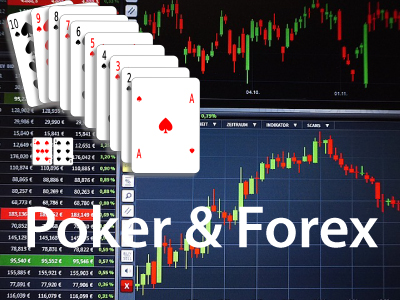There is no shortage of information when it comes to drawing comparisons between a game of poker and trading the financial markets. While it is one argument about whether poker is a game of skill or gambling, that is clear is the fact that there are quite a few common things that a poker player and a forex trader can identify with.
You don’t really need to know how to play poker. However, these common traits will help readers better understand what it takes to win.. Whether you are trading forex or playing poker.
1. Patience
Patience is the most essential aspect when it comes to playing poker. Waiting for the right face cards while at the same time watching the blinds eat into your chips can be intimidating. Knowing the best hands to play and calling or raising accordingly requires a lot of patience.
Forex trading is not quite different either. One of the most common reasons why traders lose money is because they are not patient enough. This comes due to a lack of being disciplined. More importantly, lack of patience can also be attributed to not having enough confidence and knowledge about the market.
There are many ways to fix this. The easiest is of course building familiarity with a trading system and building a plan around it. Waiting on the sidelines until you have the right trading set up can help you to not just control your risk but also win big in some cases.
Patience is not just about waiting for the right moment to place a trade, but also being patient enough for the target to be reached.
2. Consistency
Beginners luck in poker is a well known fact. However, beginner poker players tend to win quickly and also lose their winnings very quickly. Even experienced poker players have trouble in maintaining consistency.
In the forex markets, it is a difficult task to win consistently. As you can see, consistency and patience go hand in hand. When you are patient enough to wait for the right trading set up, the better are your chances in terms of winning consistently.
These two aspects will also help you to ensure that you get to keep most of your winnings.
3. Stay objective
Sometimes, emotions can get the better of some poker players. Playing a game of cards with emotions can quickly deplete your bankroll. Sometimes, poker players tend to take things personally especially after losing a hand. A series of wrong calls can quickly build into a losing streak.
Staying objective in the markets, especially when you take a loss requires a lot of practice. Emotions, as we know play a big role in deciding how you will trade. When trading with emotions, you can always be sure that it will not get you too far.
It also becomes important to control your emotions (fear or overconfidence) after a losing or a winning streak.
4. Cut your losses when you can
It is typical to see that in a few hands that you play, you start off with a good set of card combinations. While this increases your confidence, by the turn of the river and when the stakes start to rise, you begin to realize that your cards aren’t so good anymore.
Although there is an element of bluffing in poker, the fact remains that when you analyze the card combinations and you realize that your once strong hand has now become weak, the best bet is to fold rather than take the risk.
Sure, sometimes it might pay off especially when your opponent is bluffing. But this is not often the case. Such instances can make you win big or lose big.
In forex trading, traders often tend to keep their losses running in hopes that their trade will turn around. What seemed like a good set up can be invalidated by the markets and can lead to mounting losses.
5. Know when to raise and when to fold
A good poker player knows when to raise and when to fold. This is something that comes with practice and familiarity with the game. Interestingly, the forex markets are no different either.
Knowing when you add to your positions and when to scale out of your positions is an important element in your trading toolkit. This comes out of sheer practice and striving to understand how the markets work and your trading system and risk management.
Combining the above elements, traders are able to better equip themselves on when to take on more risk and when to stay cautious.
The above five traits, besides others are just a few of the common aspects when you compare poker and forex trading. At the end of the day, in poker you are speculating what cards the other person has. In the world of forex trading, you are speculating which direction the markets will rise.
